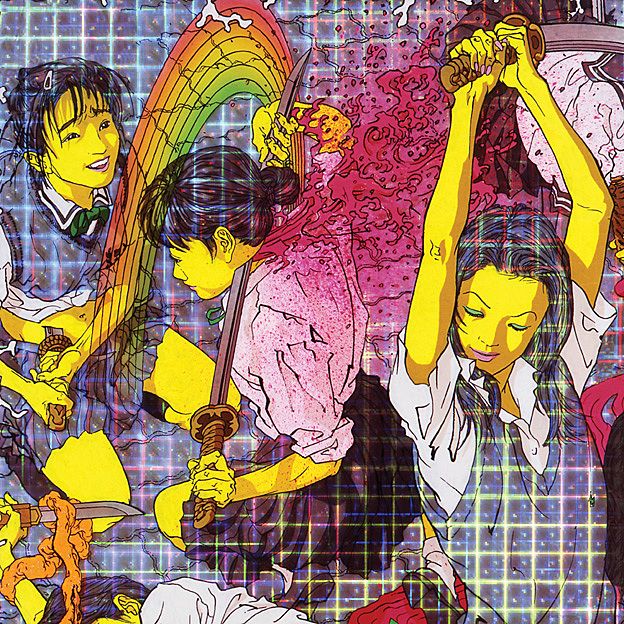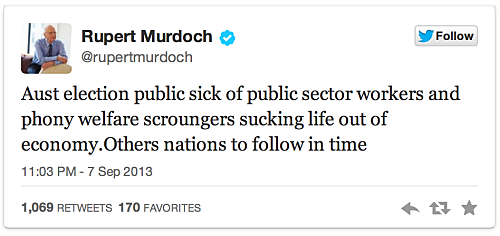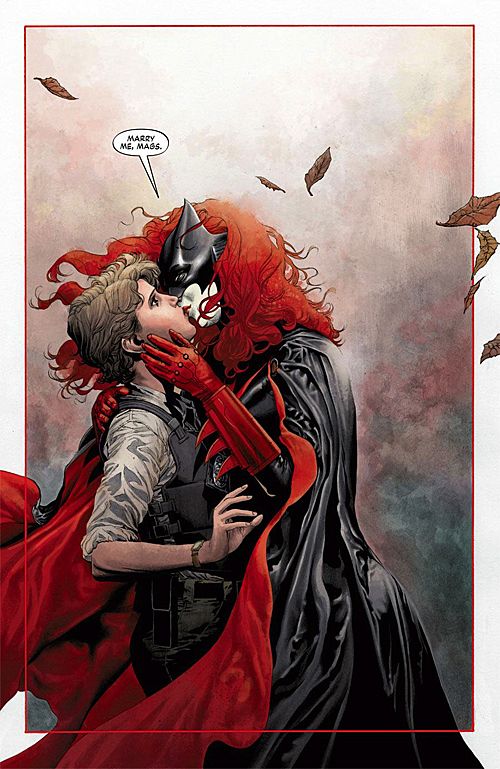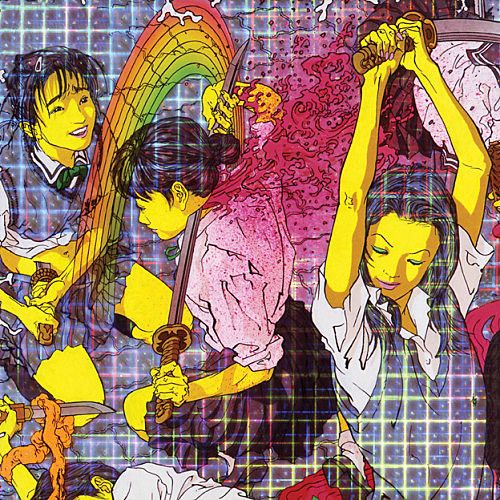Internet Histories | 16 September
This Fortnight: the Leader we deserve, DC Comics gon wild, Laurel Halo and what is money, anyway?
This Fortnight:
The Leader we deserve | DC Comics gon wild |
Laurel Halo | and what is money, anyway?
Kieran
If one were to follow the build-up and fallout of the 2013 Australian federal election through mainstream media, it’d be clear the big issue was climate change action. The incumbent Labor government introduced a wildly unpopular carbon tax, and opposition leader Tony Abbott showed strong leadership by promising to repeal it (having previously described climate science as 'absolute crap'). Thus, an election was won – the Australian people demonstrated their contempt for the ALP's 'Green sickness' and elected a new, strong, fiscally responsible party. News Limited, the Murdoch-owned media conglomorate with a 70% share of Australia's print media, used this opportunity to denigrate climate change supporters, continuing their policy of denialism, presumably embraced by their readership.
The strange thing is that a majority of Australians support some kind of climate action, and the fact that the carbon tax policy resulted in a net decrease in income tax for the vast majority of taxpayers. Carbon tax was not even in the top three concerns for voters. The Australian swing was in reality a result of poor and inconsistent leadership and reversal on issues by the ALP. Where they flip-flopped, Tony Abbott was extremely consistent in his policy of contrarianism. Whatever the ALP said, he said the opposite. And so we now have a number of election promises that individually might appeal to the average middle Australian – no carbon tax, an organised naval force to turn back refugee boats, six months of paid maternal leave, no Fringe Benefits Tax changes – but taken collectively are ridiculously expensive to achieve. I suppose these costs will be balanced out by cutting social services and time and a half rates for Saturday wait-staff.
So why do Australians elect a government that misleads them, and consume media that lies to them? I don't know.
On one hand, their elected government and chosen media largely don’t reflect the majority views of their constituents and readership. I suspect a prosperous and buoyant economy may have cultivated avarice and entitlement within the national character, and the 'Us v. Them' journalism of News Ltd. appeals to the hard-working, gym-bunny family man who only has ten minutes to read with his coffee. To him, charity belongs in the organised morning tea setting, not as policy paid for by tax-dollars, and certainly shouldn’t be offered to ‘illegal’ visitors. Climate change isn't real, or pressing; it’s easy to ignore. These attitudes become received wisdom within the working classes, so governments perceived as incompetent are punished and unpopular leaders are elected. These are not sentiments peculiar to Australia, and it's not a blanket indictment of the middle class. But it does exist, and it is part of a feedback loop of media, politics and capitalism that only benefits the wealthy and powerful.
*
DC Entertainment, formerly DC Comics, has undergone a number of structural changes in the last four years in an attempt by parent company Time Warner to tighten the reigns and presumably maximise profit in a volatile, ageing medium. Briefly, Warner wants to maximise their wealth of IP (Superman, Batman et al) tied up in an unprofitable medium (comics) by translating them to more profitable media (film and video games). Their strategies have included restarting all of their titles, making an 'adult' superman film where our hero destroys a city fighting and commits murder, and milking their shrinking comics readership of 45 year old white men with lenticular variant covers and other gimmicks.
In the last fortnight DC's editorial and management values have been demonstrated in two stories. The first was the news that Batwoman artist and writer J.H. Williams was leaving the book, along with his co-writer, due to chronic editorial influence. This has a very familiar ring, as creators have been quitting at a high rate since the New 52 reboot in 2011 as this timeline shows. Williams' departure is notable as he was one of the last people working on these books who can actually draw, and also that the catalyst was DC management's refusal to allow Batwoman (Kate Kane) to marry her girlfriend in an upcoming storyline.
Shortly afterwards, DC announced a 'break into comics' competition, inviting amateur artists to draw a one-page Harley Quinn comic, the script for which really needs to be read to be believed.
Putting aside the fact that almost all of DC's characters (including Harley Quinn) were created primarily for children, the tone of this script (suicide, gratuitous nudity, black 'humour') is indicative of the editorial tone of all of DC's mainstream titles. Co-Publisher Dan Didio's defence of both of these news items stresses an emphasis on character (read: profit-generating intellectual property) over creator. That’s an okay corporate approach to take, I guess, but don't be surprised when people don't read your shitty books and call you out for being mysoynistic, racist or greedy.
This is a company that is known for habitually raping, maiming and killing its female characters, and killing off its very few minority characters. It is also the company that paid $130 for the rights to Superman and are still fighting Siegel and Schuster's heirs in court. This is the company that produced Before Watchmen against Alan Moore's wishes. Sometimes you just want to read a fun Batman comic, and sometimes you have to refuse to give a company any more of your money. Feel free to join me in my boycott of DC's products, though I have a feeling that you weren't buying them anyway.
Matt
My aunt is an MBA and was a very successful businesswoman and made a lot of money. And I actually asked her because this idea that trillions of dollars could disappear from the stock market was confusing to me. And so I said where did all that money go? And she said, money is fiction.
How old were you when you were taught what money is? We’re told it makes the world go around, and we know when we’ve got it and when we don’t, and we suspect that it drives inequality in some vague, leftish sense – but what is it, actually?
It turns out money’s what you think it is, fleeting and ephemeral as abstract thought, powerful and ubiquitous as gravity. There’s a great episode of This American Life (the above quote is from it) where a team of journalists investigates what it is we’re doing when we exchange bits of metal or notes of paper for bread, say, or a lawnmower. What if the people we were buying from suddenly escaped the mass hallucination that these physical little reifications of value meant anything? It’s a topic that’s been kicked around for longer than stoned kids have lived in communes, but the TAL story gets to the nitty gritty, with a fascinating look at what went wrong with Brazil’s currency, and how a team of policy advisers basically tricked the entire population into a shaky, tenuous belief, saving the country in the process.
More recently, the media’s been preoccupied with digital bits replacing the bits of metal we’re used to using. Bitcoin is the earliest and most widely-cited of a cryptocurrency, a digital currency unregulated by any central institution. Bitcoins are untraceable – theoretically, at least – and their digital nature makes them even more highly fungible that wads of cash. They’re even coming to ATMs. There are plenty of other digital currencies though, and Aeon Magazine published a great piece of writing on their differences and similarities to traditional currency.
If money is an object, it must be an enchanted one, charged up with value by a subtle cultural process. Why else would anyone exchange a box of coffee for a rectangle of paper? Shopkeepers accept the paper because they believe that it has abstract value — because, in turn, they believe that others believe it, too. The value is circular, predicated on each person believing that others believe in it. You hand over your money and claim something from the shopkeeper, almost as if the coffee were owed to you. Then they take the claim that was previously yours and use it to claim something from someone else. We all trust each other to value money — but this still means that every monetary transaction is a leap of faith. And faith has to be carefully maintained.
Understanding flows of money is for stockbrokers and Wall St, sure. But understanding what money is, how it works – and sometimes doesn’t – is, to my mind, an infinitely more interesting set of puzzles.
Joe
Not a tonne to say at my end, other than that this Wednesday at Whammy Bar offers a rare opportunity to go see some music, an art form conventionally experienced through arguments on Twitter and vicariously lived through Stuff comment sections. Friends down the line tell me that Laurel Halo’s New Zealand tour has been really good so far, and she wraps up in Auckland this Wednesday (tickets still available here for $17).
English avant-garde music magazine The Wire gave her #1 top plaudits last year for her debut album, Quarantine, and if that publication still occasionally gets bogged down in theoretical laptop jazz, field recordings and other slices of 90s turtlenecked chillout academia, its top pick in any given year tends to be something that tempers its high-minded impulses with some more immediate and contemporary heft (ie: previous winners have included Dummy, The Books, and Burial).
All the same I’ve kept reading about her being ‘divisive’ without anyone ever really saying why. Some of it appears to be with her voice. The done thing in the last five odd years of indie electronica has been to let the haze do a lot of your heavy lifting and to abdicate the frontperson’s role – yr Caribous, yr Washed Outs, yr Merriweather Post Pavillion plus Xeroxes.
By comparison, Quarantine found Halo pushing herself front and centre. ‘Years’, one of my favourite songs on here, left her so high and dry some people mistook the leak of the album for an un-mastered demo – kinda aggravating, as even when the edges aren’t smoothed off she’s still a formally good singer and we spent a lot of the 90s and 2000s hailing the direct and unmediated authenticity of people who weren’t and just sounded like Blind Melon with hi-hats.
In saying this, I dunno how on board I am with the focus on her breaking through in a man’s world that comes through in otherwise well-read and well-written bits like Jim Pinckney’s feature on her in the Listener – “above the testosterone ramparts of the contemporary electronic music world…a woman in electronic music’s patriarchal confines” – I mean, everything has patriarchal confines when we’re talking about the critical taxonomy of popular music, it’s an edifice almost solely erected by eternal manchildren (hi), and it’d be a shame to reduce her to being the female corollary response to contemporary electronic music anyway.
Rather than being the answer to anything, her year’s work to date suggests she’s still asking questions, consistently repudiating her own work (her May EP, Behind The Green Door, favours propulsive liquid techno – talking to Martyn Pepperell for Vanguard, she’s now almost talking down Quarantine as a good record to release, but not an important one). I’ll settle for her being a quietly interesting artist, who hasn’t yet advanced some sort of gimmick or polemic or talking point to go beyond a certain level of hype outside of the standard circles. This’ll just have to be enough (it’s plenty).
Elsewhere – here she is showing Resident Advisor her studio setup in a piece that’s half photo-essay and half technical guide rundown, and a good interview with The Quietus. Her new album, Chance Of Rain is out in late October – someone who already got an ear to it at the Guardian referred to it as “wavering, pad-heavy Detroit techno leavened with blue notes”, while elsewhere it’s being called “Amnesiac played in reverse through a mellotron”. Sure.
And finally, her album covers are insane:










